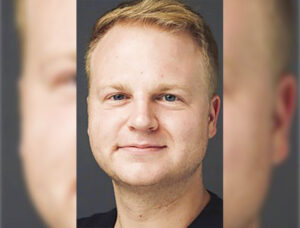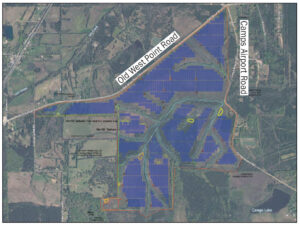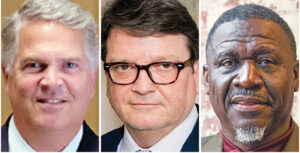WASHINGTON — The common ground between the U.S. and Russia — and Presidents Barack Obama and Vladimir Putin — has been shrinking steadily in spite of the much-touted “reset” of relations between the old Cold War foes. And it just got even smaller.
The latest blow to improving relations came Wednesday when Obama, annoyed with Putin’s decision to grant temporary asylum to National Security Agency leaker Edward Snowden, canceled a face-to-face summit with the Russian leader. While U.S. and Russian foreign and defense ministers will sit down in Washington later this week, Obama won’t be going to Moscow next month.
The Snowden decision was only the final straw in disputes that the White House cited for a lack of “recent progress.” The U.S. and Russia have been at odds over the Syrian civil war, Russia’s domestic crackdown on civil rights, a U.S. missile defense plan for Europe, trade, global security, human rights, even adoptions of Russian children by Americans.
“We looked at the utility of the summit in light of a number of issues and a number of challenges that we’ve encountered and decided that it did not make sense to have that bilateral summit in Moscow in September,” White House press secretary Jay Carney told reporters returning with Obama Wednesday on Air Force One from a trip to California.
Noting that the U.S. and Russia cooperate on other matters, including the supply of U.S. troops in Afghanistan, Carney said the relationship “should not be viewed entirely in a black-and-white fashion.” He added, “Even when we’ve made progress in some areas in our relations with Russia we have continued to encounter disagreement in other areas, and I expect that will be the case going forward.”
The Kremlin responded quickly to the canceled summit, voicing its own disappointment and blaming it on Washington’s inability to develop relations with Moscow on an “equal basis.” Putin’s foreign affairs adviser, Yuri Ushakov, added that the decision was “clearly linked” to the Snowden case, a situation that he said wasn’t of Russia’s making.
While Snowden might have been the immediate catalyst for canceling the summit, the seeds of renewed U.S.-Russia discord were planted more than a year ago when Putin regained the Russian presidency. On returning to power, he adopted a deeply nationalistic and more openly confrontational stance toward the United States than had his chosen successor, Dmitry Medvedev, whose 2008-12 tenure roughly overlapped Obama’s first term in the White House.
Where Medvedev abstained in a U.N. Security Council vote that authorized NATO airstrikes in Libya, Putin has refused repeated entreaties from Washington to allow the world body to impose even minimal sanctions on President Bashar Assad’s Syria. At the same time, Putin’s government has continued to supply its ally Assad with weapons. And it has not delivered on pledges to coax Assad into sending representatives to talks with the opposition aimed at finding a political solution to the 2-year-old Syrian conflict.
Obama sought to cultivate Medvedev as a friend of the United States, making significant changes to Bush administration plans for European missile defense to try to ease Russian concerns about that project, signing a new arms control treaty and famously sending then-Secretary of State Hillary Rodham Clinton to meet Russian Foreign Minister Sergey Lavrov in Geneva, where she proclaimed a “reset” in U.S.-Russia relations.
Putin, however, seems to want none of the coziness that a “reset” would bring and has actively sought to undo previous agreements on cooperation. Under Putin, Russia has stepped up its negative rhetoric on missile defense, ended two decades of democracy and civil society training by the U.S. Agency for International Development and banned adoptions of Russian children by Americans.
Andrew Kuchins, a political scientist and expert on Russian politics at the Center for Strategic and International Studies, said he thinks the reset has been on hold for a while.
“We hit the peak at the end of 2010, and then things started going downhill gradually in 2011,” Kuchins said. “Then, when the announcement was made that Putin was coming back as president in the fall of 2011, the downfall of the reset got a little steeper. ”
But he said he does not think that Putin wants to trash the U.S.-Russia relationship and doesn’t think relations are as bad as they were after the Georgia war in the fall of 2008 and 2009. In 2008, Georgia and Russia fought a brief war after Georgia launched an intense artillery barrage on the capital of South Ossetia, and Mikhail Saakashvili, the president of the former Soviet republic, forged a deeper relationship with the U.S.
“That was a pretty dangerous moment for the relationship,” Kuchins said. “Right now, I don’t see such a dangerous moment in the relationship, but we have some fundamental disagreements on nuclear security, missile defense, Syria. I don’t think the Russians are taking positions just to counter us, undermine us. But they have some fundamental differences. They have a different way of looking at some things.”
Ivo Daalder, former U.S. ambassador to NATO and now president of The Chicago Council on Global Affairs, said some positive steps have come from the reset, including Russia’s willingness to help the U.S. transport military materiel in and out of Afghanistan.
“There still is cooperation on areas like Iran, where Russia voted four times in the U.N. Security Council to impose new sanctions,” Daalder said. “There is cooperation on North Korea — Russia has voted for new sanctions. And those are material, positive steps in the relationship that have been the result of the reset.”
But he said that a reset also suggests a future relationship and that despite meetings Vice President Joe Biden, Secretary of State John Kerry and former National Security Adviser Tom Donilon have had with Russian officials, there has been little progress on Syria, nuclear arms reduction and missile defense issues.
In April, Obama asked Donilon to hand-deliver a letter to Putin, proposing new ways to cooperate. Ushakov, Putin’s foreign affairs adviser, said Obama’s letter was “quite constructive” and contained specific proposals regarding arms control and economic cooperation.
But Daalder said Russia’s responses to the letter have been “either nonexistent or negative.”
Putin and Obama last met in June, on the sidelines of the summit of the Group of Eight industrial nations.
Putin said then that he believed the U.S. and Russia had an “opportunity to move forward on most sensitive directions.”
Obama said then that the two nations were poised to increase trade and investment and had pledged to continue to work together to counter potential threats of proliferation and to enhance nuclear security.
“I think this is an example of the kind of constructive, cooperative relationship that moves us out of a Cold War mindset,” Obama said.
That was just seven weeks ago.
On Tuesday, a day before he canceled his meeting with Putin, Obama said on NBC’s “The Tonight Show” that there have been times when the Russians “slip back into Cold War thinking and a Cold War mentality.”
You can help your community
Quality, in-depth journalism is essential to a healthy community. The Dispatch brings you the most complete reporting and insightful commentary in the Golden Triangle, but we need your help to continue our efforts. In the past week, our reporters have posted 43 articles to cdispatch.com. Please consider subscribing to our website for only $2.30 per week to help support local journalism and our community.







